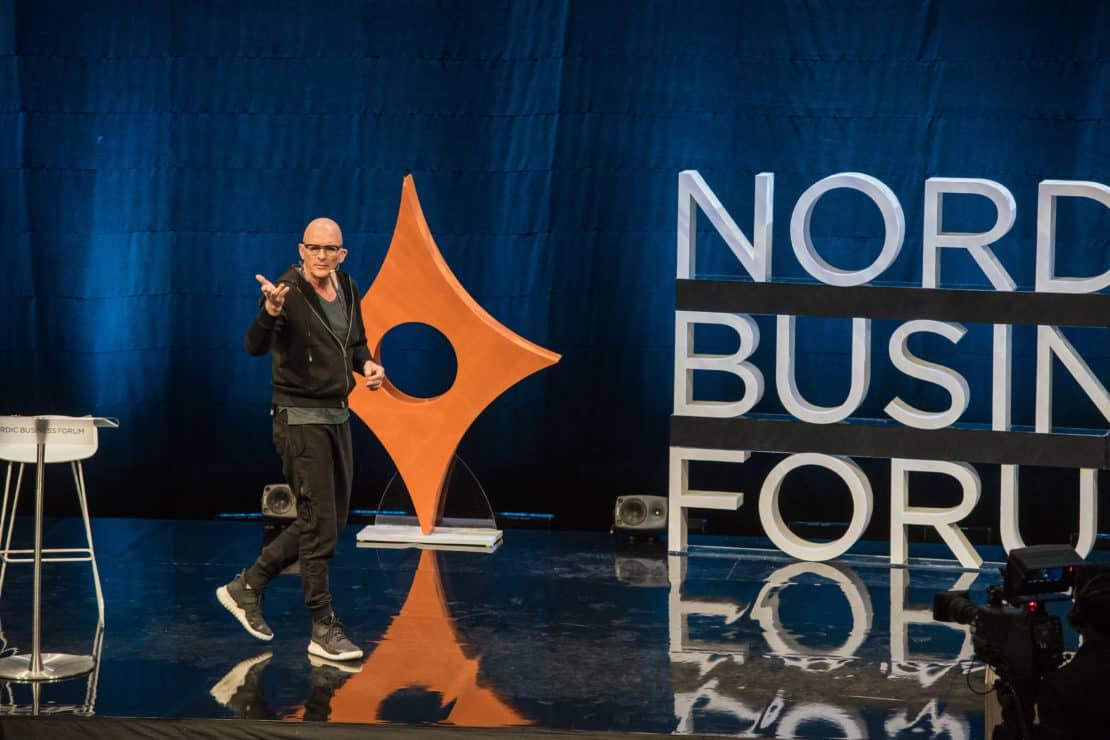27Mar2017
A growing number of large companies are beginning to seek successful startup partnerships in which both sides take risks and share the rewards.
Corporations have resources, a massive customer base, and market research experts, yet they often find it difficult to innovate. Startups, on the other hand, lack the assets but tend to come up with disruptive, innovative, and successful ventures.
Because of the ever so critical ability to innovate, corporations are now taking startups more seriously and seeking to establish tighter relationships with early-stage startups.
A joint research study by the Boston startup accelerator MassChallenge and innovation firm Imaginatik looked at how startups and corporations work together in new ways, focusing on flexible, early-stage, and open-ended partnerships.
Startup/Corporate Collaboration Becomes “Mission Critical”
The research team surveyed 112 corporations and 233 startups from various industries. A significant 82% of the polled corporations considered interactions with startups as important, and 23% stated that these interactions are not just important but “mission critical”. The motives for large companies to interact with startups were mainly based on exploring new technologies or business models, and gaining insight into emerging industry trends.
“Corporations can learn a lot about how startups operate, the technology choices they make, and how small autonomous teams can move much faster than siloed top-down teams,” says Emerson Taymor, co-founder of the digital consulting company Philosophie.
Almost 45% of the corporations considered strategic fit as the most important factor in either succeeding or failing in the collaborative relationship with a given startup. Apart from helping with the decision of what startups to work with, strategic fit also drives the process of building the relationship and processes.
Corporations often run special programs to proactively create and manage relationships with startups, which serve two purposes; scouting and matchmaking. The startup scouting includes sources promising startups that align with the company’s strategic innovation interests while the matchmaker role includes mediating initial interactions with business stakeholders—ranging from people within product lines to the innovation team itself, depending on the strategic objectives.
One notable aspect is the rise of the innovation departments in large organizations. 86% of the surveyed corporations view innovation as crucial to their future.
As a dedicated innovation team is still a new and still evolving concept for many, such teams are considered bring two main benefits to organizations:
- Sourcing and incubating innovation opportunities is their full-time job
- An increasing number of innovation programs have both the resources and the latitude to fund and launch innovation bets on their own, even in the absence of a business champion
Startups More Corporate Savvy than Ever
A whopping 99% of startups say it’s important for them to interact meaningfully with the right corporations. In comparison, 82% of corporations think it was at least ‘somewhat important’ to interact with startups.
“As a startup, there’s a variety of potential benefits to working with a corporation depending on how the partnership is structured. In some cases, you can get improved distribution or gain access to existing services instead of developing them yourself,” explains Maxime Rieman, Director of Online Channel Product Marketing at CoverWallet.
Most startups view corporate relationships as multifaceted, and potentially leading to a variety of long-term benefits:
Corporations as customers – the decision to work with a corporation depends on the space in which the startup operates. B2B startups consistently mentioned corporations as potential customers.
Corporations as marketing channels – B2C startups tend to see corporations as established marketing channels for gaining presence in new markets. A relationship can be developed through a range of tactics—by being customers, strategic partners, investors, licensing, and more.
“Corporations represent channels to market for us by using us as a vendor in customer projects, or by co-marketing our technology to their customers,” says Preston Tesvich, COO of the IoT software company Droplit.
Corporations as strategic partners – 65% of startup respondents considered strategic partnerships as important. As a part of a strategic partnership, startups can leverage corporate resources like marketing, research, and supportive champions.
“Startups can also learn a lot about how large companies operate, especially around HR policy, reviews, progression, and so on. Many things that smaller companies don’t prioritize because they don’t know how,” Taymor explains.
Corporations also act as casual mentors for startups, offering advice, as well as access and strategic opportunities for mutual benefit. Connections to large companies can also add credibility when dealing with potential customers. According to Taymor, “a startup that is able to partner with a trusted corporation can get ‘street cred’ when pitching their service by having the big brand’s logo on their website, marketing materials, etc. In a world of hyper-competition, this trust factor can be the most compelling aspect of a sale.”
Build value now, worry about acquisitions later
Optimizing around early acquisitions no longer seems to be a top priority for startups as only 14% of startups said that an acquisition was their main goal in working with corporations. Building value and relationships first were considered far more important. At times, though, a solid relationship can lead to acquisition.
Despite the reasons to develop mutually beneficial work relationships, startups also deal with some degree of frustration. 50% of them said they experienced difficulties working with corporations, such as:
- Tough to find the right person to talk to, or the interested one may not necessarily have the buy-in power
- Corporate bureaucracy
- Corporations are poor at innovating
- Low desire to try new things, and low-risk tolerance
Regardless of these downsides, 60% of the startups still said that working with corporations was successful, compared to 55% of corporations that have experienced success.
Relationships between corporations and startups are turning into nuanced partnerships while they both grow and learn from each other in the process.
Recommendations for Corporations
When approaching a startup, corporations should be open about whether it’s a learning exercise or a clear intent to partner. The study suggests a series of actionable ideas:
Appoint a startup champion – set up an individual or a team to own the relationship and also internally influence key stakeholders and shape solutions.
Establish internal structures – nominate a liaison that should figure out fast who the real relationship owner within the organization is, and what resources are in play, on a case-by-case basis.
Solidify a strategy – corporations must outline their strategy and nominate internal stakeholders to push those objectives forward in cultivating startup relationships with confidence.
Streamline processes – corporations need to create parallel “fast-track” processes for startup relationships. Successful startup partnerships depend on being loose, fast, and generous early—giving both sides the chance to uncover potential or fail fast.
“We seek to establish as quickly as possible what type of relationship we feel we can maximize with anyone [large] company, then create the in-roads to discover, contact, and endear the decision maker to our solution,” says Tesvich.
Recommendations for Startups
For entrepreneurs, thoughtfulness on why to approach corporations in the first place was seen one of the keys to a successful partnership. Sometimes, even the best corporations can lack transparency, be slow, and waste time and effort. One option is to hire an enterprise sales expert to navigate corporate complexity and conflicting agendas.
Understanding the corporation’s needs and vision is crucial for seeing where a startup can add value. “For startups looking to work with corporations, it’s good to start determining those functions and services which an existing business either needs assistance with or cases where it’s less economical to provide a service themselves,” explains Rieman.
As the corporate world is ever-changing and many large companies have already set up an innovation lab or accelerator or partnered with one, the study finds large companies to be more receptive and open to collaboration with startups and likely to feel “much less ‘corporate’ than expected”.
Read more: The State of Startup/Corporate Collaboration in 2016


